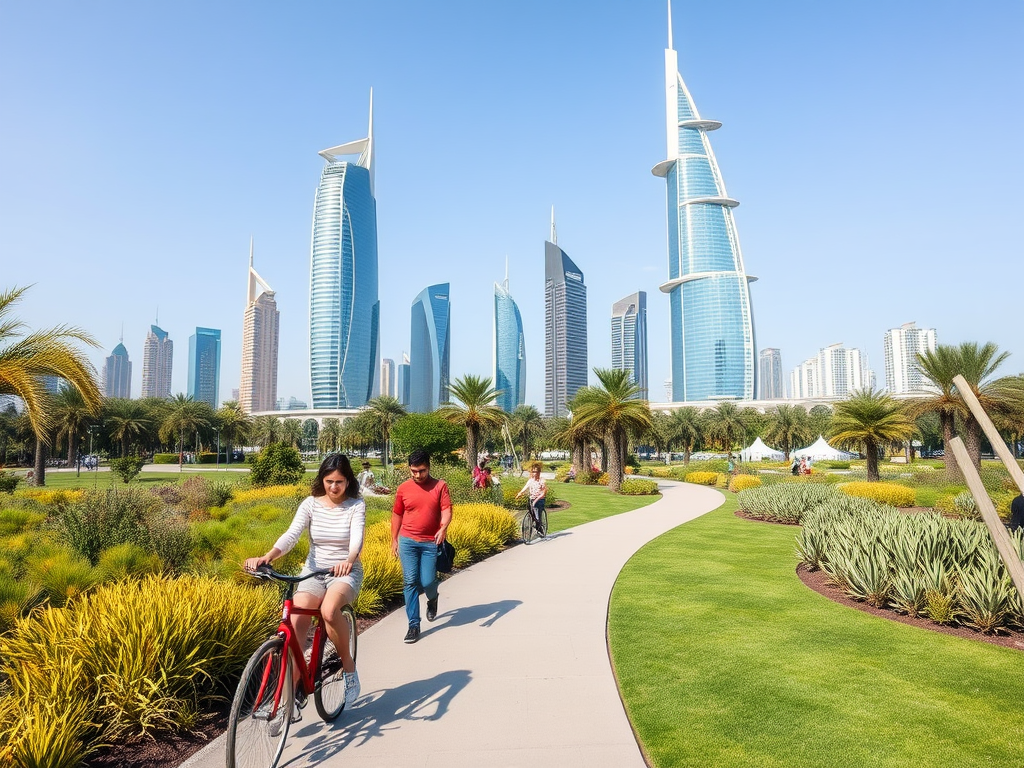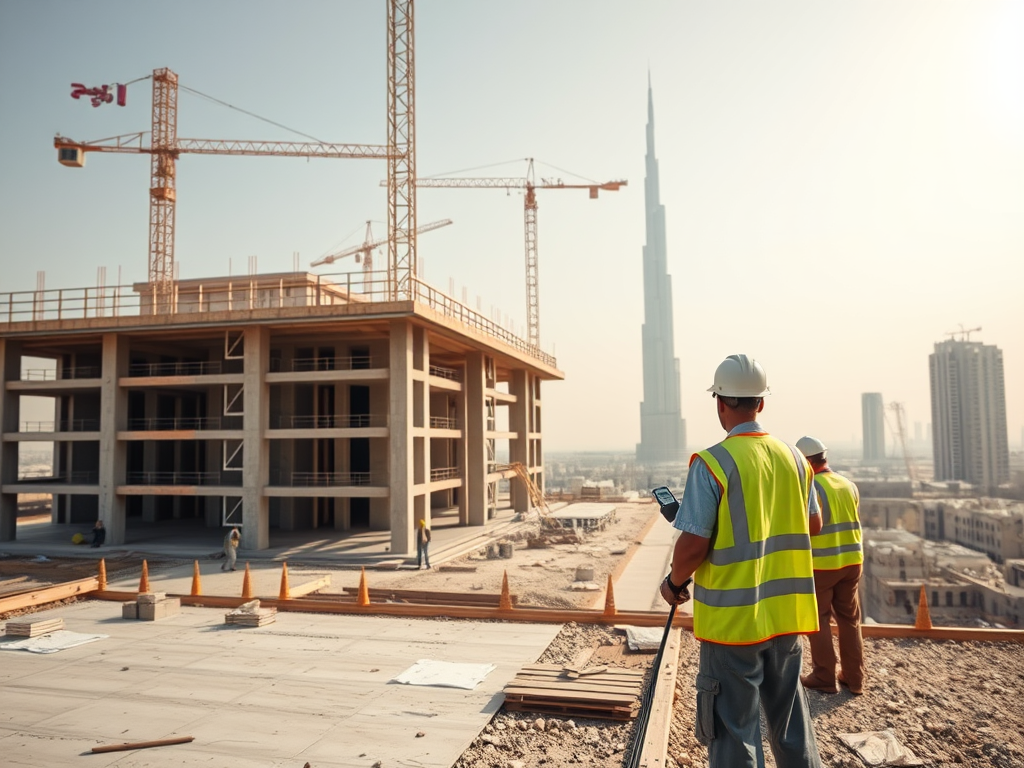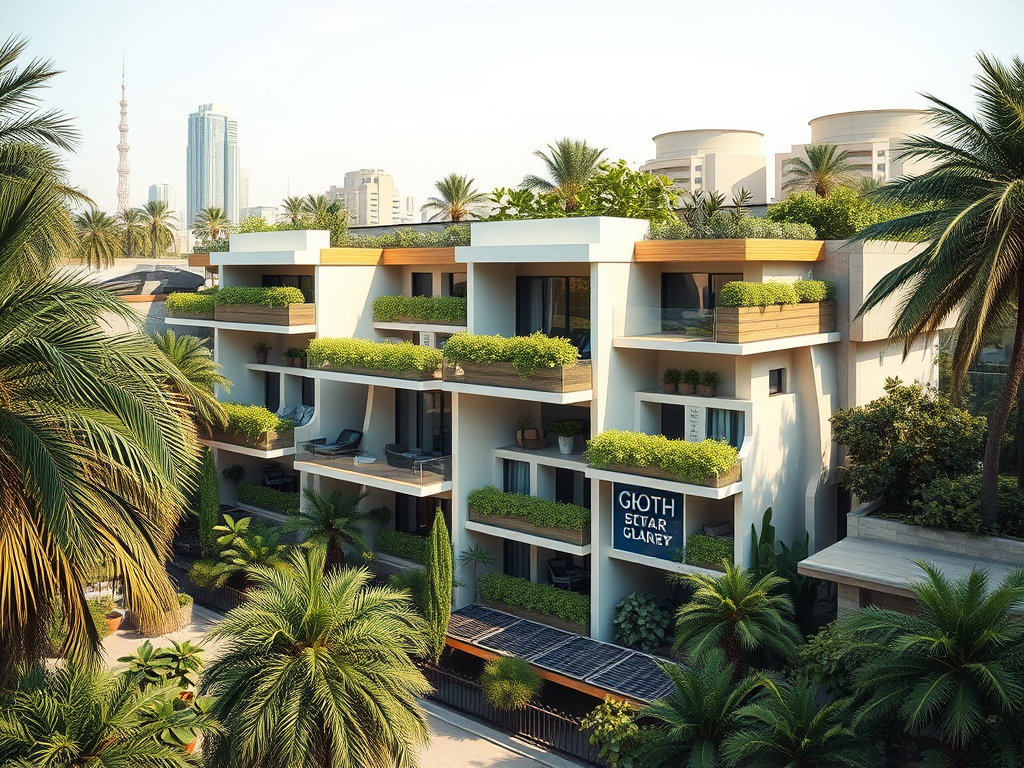The importance of sustainability in Dubai’s real estate market cannot be overstated. As a rapidly growing city, Dubai faces unique environmental challenges that necessitate a shift towards more sustainable practices in construction, development, and living. Sustainability is not just a trend but a vital component of urban planning that impacts the economy, environment, and quality of life for residents. With the government’s commitment to achieving a sustainable future, the real estate sector is poised to lead the charge in implementing innovative, eco-friendly solutions. This article explores the significance of sustainability in Dubai’s real estate market and how it shapes the city’s landscape.
Economic Benefits of Sustainable Real Estate

Sustainable real estate offers several economic benefits that can enhance property values, attract investments, and foster job creation. As more buyers seek eco-friendly living options, developers integrating sustainable practices into their projects can tap into this growing market. Here are some of the economic advantages:
- Higher property demand due to eco-conscious consumers.
- Cost efficiency through energy-saving technologies and materials.
- Government incentives for green building certifications and sustainable projects.
- Long-term cost benefits from reduced utilities and maintenance expenses.
- Enhanced appeal for international investors prioritizing sustainability.
By focusing on sustainability, Dubai’s real estate market can create a vibrant economy while addressing environmental concerns head-on.
Environmental Impact of Sustainable Development

The environmental impact of traditional construction and real estate development can be profoundly negative, contributing to pollution, resource depletion, and habitat destruction. In contrast, sustainable development emphasizes minimizing ecological footprints, balancing urban growth with nature. Key environmental strategies include:
- Using renewable materials that reduce waste and lower carbon emissions.
- Implementing energy-efficient systems such as solar panels and smart technology.
- Creating green spaces to enhance biodiversity and improve air quality.
- Utilizing water conservation techniques to reduce consumption.
- Promoting sustainable transportation options like cycling and electric vehicles.
By adopting these practices, Dubai can improve its environmental footprint, ensuring that future generations inherit a healthier planet.
Social Advantages of Sustainable Living
Sustainability is not just about the environment; it also brings significant social benefits to the community. A sustainable real estate market fosters a better quality of life, promotes social equity, and encourages community engagement. Some social advantages include:
- Improved public health through cleaner air and more green spaces.
- Greater community resilience in the face of climate change.
- Accessible and affordable housing options for low-income residents.
- Enhanced social cohesion as residents engage in sustainable initiatives.
- Increased awareness and education around sustainability practices.
As a result, sustainable living can lead to a stronger and more engaged community that prioritizes well-being and collective responsibility.
Government Initiatives Supporting Sustainability
The Dubai government has taken significant steps to promote sustainability within the real estate sector. These initiatives are essential for aligning development with the city’s long-term vision and addressing environmental challenges. Key government efforts include:
- The Dubai Clean Energy Strategy 2050, aiming for 75% of the city’s energy to come from clean sources.
- The Dubai Integrated Energy Strategy, focused on reducing energy demand through innovative solutions.
- The Green Building Regulation, mandating sustainability practices in construction.
- The Sustainability Report, tracking progress and setting benchmarks for developers.
- Incentives and funding options for green projects to encourage developer participation.
These initiatives not only propel the real estate market toward sustainability but also set a standard for cities worldwide.
While the push for sustainability in Dubai’s real estate market is promising, several challenges remain. Addressing these obstacles is critical for long-term success. Some of the challenges include:
- High upfront costs associated with sustainable construction materials and technology.
- Limited awareness and understanding of sustainable practices among developers and stakeholders.
- Regulatory hurdles that may inhibit quick adaptation to new sustainable practices.
- Market resistance from buyers more focused on aesthetics than environmental impact.
- Competition from traditional construction methods that may offer lower initial costs.
Overcoming these challenges requires collaborative efforts from the government, developers, and the community to drive the sustainability agenda forward.
Итог
The importance of sustainability in Dubai’s real estate market is evident in the multitude of benefits it brings to the economy, environment, and social fabric of the city. By embracing sustainable practices, the real estate sector not only enhances property values but also contributes to a healthier and more resilient community. The initiatives put forth by the government provide a robust framework for future development, although challenges still need to be addressed. As Dubai continues to grow, the focus on sustainability will be paramount to ensuring a prosperous and livable city for all.
Часто задаваемые вопросы
1. What is sustainable real estate?
Sustainable real estate focuses on environmentally responsible practices in property development, emphasizing energy efficiency, resource conservation, and minimal ecological impact.
2. How does sustainability impact property values in Dubai?
Properties developed with sustainable practices often see increased demand, leading to higher property values as eco-conscious consumers prioritize green living.
3. What government initiatives support sustainability in Dubai’s real estate market?
The Dubai Clean Energy Strategy 2050 and Green Building Regulation are two key initiatives encouraging sustainable practices in new developments.
4. What are some challenges to implementing sustainable practices in Dubai real estate?
Challenges include high initial costs, limited awareness, regulatory hurdles, market resistance, and competition from traditional methods.
5. Why is community engagement important in sustainable real estate development?
Engaging the community fosters social equity, enhances public health, and builds resilience within neighborhoods, ensuring that sustainability efforts meet the needs of all residents.
